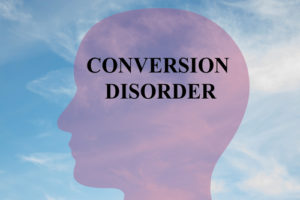
VA Compensation for Conversion Disorder — Everything You Need To Know
Did you receive a denial of your conversion disorder veterans’ benefits? You can appeal the denial. Call (888) 373-4722 to get help from a veterans’ benefits advocate.
Getting VA Disability Benefits for Service-Connected Conversion Disorder
Conversion disorder is a type of somatoform disorder, in which physical symptoms appear without an identifiable physical cause. In the case of conversion disorder, patients suffer neurological symptoms that doctors cannot explain with a physical diagnosis.
These symptoms often include sensory issues, including difficulty seeing, hearing, swallowing, or balancing. If you experienced a traumatic situation during your service and later began experiencing symptoms of conversion disorder, a connection between the two may exist. An advocate may be able to help you find and submit evidence of this “nexus,” leading to a grant of disability benefits.
A VA Disability Advocate Can Help You Submit an Appeal
To recover VA disability benefits for conversion disorder, your appeal must prove three essential elements:
- You have a valid diagnosis of conversion disorder.
- You experienced an event during your service that exposed you to stress or trauma or that your condition began during service.
- A nexus (or connection) exists between the event and your condition.
A Diagnosis of Conversion Disorder
First, you must present evidence of a diagnosis of conversion disorder.
An Event During Your Military Service
Second, you must point to a specific event during your military service in which you suffered a high level of stress or trauma or point to evidence that establishes your symptoms began while you were serving.
A Nexus Between the Two
Third, you must produce evidence showing a medical nexus between the event (or onset) and your diagnosis. You and your advocate must make a compelling case that it is at least as likely as not that the in-service event or onset led to your current condition.
The VA Disability Compensation Scale for Conversion Disorder
When VA approves your appeal, it will assign you an impairment rating. This rating determines how much you will receive in monthly compensation. VA impairment ratings range from 0% to 100%.
Here is the schedule of ratings for conversion disorder and other psychological disorders, taken directly from VA’s handbook:
- 100% Impairment Rating: “Total occupational and social impairment, due to such symptoms as gross impairment in thought processes or communication; persistent delusions or hallucinations; grossly inappropriate behavior; persistent danger of hurting self or others; intermittent inability to perform activities of daily living (including maintenance of minimal personal hygiene); disorientation to time or place; memory loss for names of close relatives, own occupation, or own name.”
- 70% Impairment Rating: “Occupational and social impairment, with deficiencies in most areas, such as work, school, family relations, judgment, thinking, or mood, due to such symptoms as suicidal ideation; obsessional rituals which interfere with routine activities; speech intermittently illogical, obscure, or irrelevant; near-continuous panic or depression affecting the ability to function independently, appropriately and effectively; impaired impulse control (such as unprovoked irritability with periods of violence); spatial disorientation; neglect of personal appearance and hygiene; difficulty in adapting to stressful circumstances (including work or a work-like setting); inability to establish and maintain effective relationships.”
- 50% Impairment Rating: “Occupational and social impairment with reduced reliability and productivity due to such symptoms as flattened affect; circumstantial, circumlocutory, or stereotyped speech; panic attacks more than once a week; difficulty in understanding complex commands; impairment of short and long-term memory (e.g., retention of only highly learned material, forgetting to complete tasks); impaired judgment; impaired abstract thinking; disturbances of motivation and mood; difficulty in establishing and maintaining effective work and social relationships.”
- 30% Impairment Rating: “Occupational and social impairment with occasional decrease in work efficiency and intermittent periods of inability to perform occupational tasks (although generally functioning satisfactorily, with routine behavior, self-care, and conversation normal), due to such symptoms as depressed mood, anxiety, suspiciousness, panic attacks (weekly or less often), chronic sleep impairment, mild memory loss (such as forgetting names, directions, recent events).”
- 10% Impairment Rating: “Occupational and social impairment due to mild or transient symptoms which decrease work efficiency and ability to perform occupational tasks only during periods of significant stress; or symptoms controlled by continuous medication.”
- 0% Impairment Rating: “A mental condition has been formally diagnosed, but symptoms are not severe enough either to interfere with occupational and social functioning or to require continuous medication.”
As of December 2019, here are the monthly VA disability compensation rates you can expect:
- 0% rating: $0 per month
- 10% rating: $142.29 per month
- 30% rating: $435.69 per month
- 50% rating: $893.43 per month
- 70% rating: $1,426.17 per month
- 100% rating: $3,106.04 per month
Additional benefits may be payable if you are married and/or if you have dependents once you are rated at 30% or higher. Get help from Disabled Vets. Call today for a free claim evaluation at (888) 373-4722.



